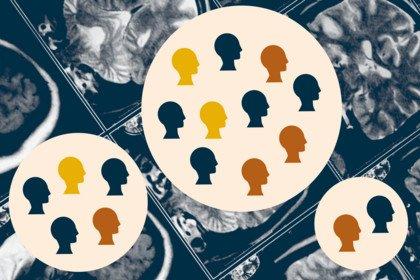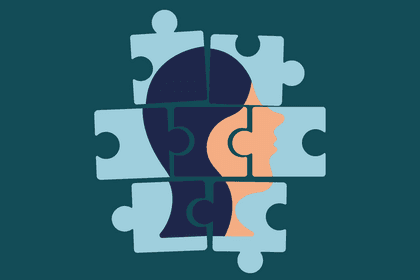
Is CBD the future of antipsychotic drugs? A new global study investigates
Researchers think cannabidiol could offer a groundbreaking new treatment for people with psychosis. A Wellcome-supported study could help find the answers.

Anastassiya Bezhekeneva
The medicinal properties of cannabidiol – often referred to as CBD – have long captured the imagination of researchers. And it’s not surprising.
Studies have shown that CBD may help to relieve symptoms of a wide variety of conditions. Now, we want to see if it can unlock a new mechanism for treating psychotic disorders.
What is the difference between cannabis, cannabinoids and cannabidiol (CBD)?
Cannabis is the name of a plant family which includes both hemp and marijuana. Scientists have identified over 130 different molecules in cannabis plants, and these are referred to as cannabinoids.
CBD is just one of these cannabinoids. It is not psychoactive (which means it can’t get you high) and is the molecule extracted for use in medication. THC (tetrahydrocannabinol) is another molecule found in cannabis plants – this is the psychoactive component and is the molecule that has been associated with causing psychosis.
Why we need new antipsychotic drugs
Psychotic disorders like schizophrenia affect millions of people worldwide. The symptoms of psychosis can be diverse and often debilitating, including hallucinations, delusions and confused or disturbed thoughts.
Common antipsychotics such as quetiapine or olanzapine are often used to treat psychosis by blocking dopamine receptors in the brain (referred to as dopamine receptor antagonists). They were originally developed in the 1950s and revolutionised the treatment of psychotic disorders at the time.
However, these dopamine-targeting antipsychotics don’t work for a lot of people and the side effects associated with them can be severe. But for most people living with psychosis, there are no alternatives.
That’s why it’s important we explore avenues for new therapies. Particularly those that don’t rely on a mechanism that disrupts the dopamine system.
CBD offers one such avenue for investigation.
A growing body of evidence has found that CBD can reduce the symptoms of psychosis. Instead of impacting the dopamine system like existing antipsychotics, CBD works partly by modulating the endocannabinoid system – a complex system which plays a role in the modulation of neurotransmitters, metabolism and inflammation.
However, these findings haven’t been translated into any clinically-approved antipsychotic medication yet.
A global study into CBD as an antipsychotic
We are excited to support a major new global study and clinical trial that will further investigate the effectiveness of CBD in treating people with psychosis.
Led by Professor Philip McGuire at Oxford University, and supported by colleagues at King’s College London, the STEP (Stratification and Treatment in Early Psychosis) programme is the first of its kind.
Unlike many studies in this field, the team will use a CBD drug product (supplied by Jazz Pharmaceuticals) that is already approved and used in clinical practice to treat severe epilepsy. This will allow the team to more closely regulate, monitor and assess the impact of dosages during the trial and, crucially, would make it easier to translate the findings into clinical practice.
The study is also huge – in scale and ambition – and will see the team work across 38 sites in 11 countries and three clinical trials.
The team will assess 1,000 participants before and after treatment using a range of neuroimaging techniques (like magnetic resonance imaging and spectroscopy) to clarify how CBD acts to produce its effects. And alongside this, researchers will use clinical, digital, cognitive, neuroimaging and blood measures to try to identify biomarkers – biological signposts – which would indicate if a patient might respond well to the treatment.
Professor McGuire and his team will use all of this data to investigate whether CBD can be used not only to treat established psychosis, but also to prevent the onset of psychosis in people at high risk of developing it.
The future of antipsychotic drugs
We know that current therapies for psychosis are limited, they can have significant side effects, patients often stop taking them, and they don’t work for everyone.
Studies like the STEP programme offer an exciting opportunity to find a new treatment that is effective at multiple stages of psychotic disorders, and that can be delivered with a far greater degree of personalisation.
Wellcome’s Mental Health strategy aims to create transformational change by finding new and improved ways to intervene in anxiety, depression and psychosis as early as possible.
This new study hopes to do just that.
We’re funding research to help create transformative change in early intervention for anxiety, depression and psychosis.
There are currently no open funding opportunities for Mental Health. Learn more about the funding we provide.


